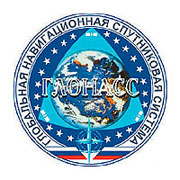Russia. Glonass also for satellites.
5 Oct 2013The Russian Defense Ministry is planning to use the country’s Glonass global positioning and navigation satellite network to operate other satellites in orbit. 
“Glonass will be used extensively in the future to control spacecraft,” said Sergei Berezhnoi, an aide to the head of the Titov Space Control Center, Russia’s main satellite control center.
According to the official, the Glonass system will also render automated assistance in the search for “missing” satellites with which operators on the ground have lost contact.
“In addition, this system could be used to help fix satellite glitches without the involvement of ground control facilities,” he added.
Glonass (Global Navigation Satellite System), which was officially launched in 1993, is Russia’s answer to the US Global Positioning System (GPS). It provides real-time positioning and speed data for surface, sea and airborne objects with an accuracy of one meter.
The Glonass system requires at least 18 operational satellites for continuous navigation services across the entire territory of Russia and 24 satellites to provide navigation services worldwide.
A group of 29 Glonass satellites is currently in orbit: 24 are currently in operation, three are spares, one is in maintenance, and one is in test flight phase, according to Russia’s space agency, Roscosmos.
By 2020, Russia plans to have 30 Glonass-M and new-generation Glonass-K satellites in orbit, including six in reserve, Roscosmos has said.
Russian President Vladimir Putin called on the members of the Commonwealth of Independent States (CIS) to join Glonass.
“This system has the capability to provide considerable benefits in the economic sphere, since it reduces cargo transportation costs on all transportation systems, and it definitely increases the safety of all types of transportation,” Putin said at a session of leaders of CIS member states in December 2012.
From Ria Novosti
Comment Form
Welcome
We are a group of long experienced European journalists and intellectuals interested in international politics and culture. We would like to exchange our opinion on new Europe and Russia.
Categories
- Breaking News (11)
- CIS (129)
- Climate (2)
- Energy&Economy (115)
- EU Eastern Dimension (85)
- Euro 2012 – Sochi 2014 – World Cup 2018, Sport (43)
- Euro-Integration (135)
- History Culture (198)
- International Policy (261)
- Military (74)
- Interviews (18)
- Italy – Italia – Suisse (47)
- Odd Enough (10)
- Poland and Baltic States (126)
- Religion (31)
- Russia (421)
- Survey (4)
- Turning points (4)
- Ukraine (176)
- Российские страницы (113)
Archives
- November 2020
- October 2020
- September 2020
- August 2020
- July 2020
- May 2020
- April 2020
- March 2020
- January 2020
- December 2019
- November 2019
- October 2019
- September 2019
- August 2019
- July 2019
- June 2019
- May 2019
- April 2019
- March 2019
- February 2019
- December 2018
- November 2018
- October 2018
- September 2018
- August 2018
- July 2018
- June 2018
- May 2018
- April 2018
- March 2018
- February 2018
- January 2018
- December 2017
- November 2017
- October 2017
- September 2017
- August 2017
- July 2017
- May 2017
- March 2017
- January 2017
- December 2016
- November 2016
- October 2016
- September 2016
- July 2016
- June 2016
- May 2016
- April 2016
- February 2016
- January 2016
- November 2015
- October 2015
- September 2015
- June 2015
- April 2015
- March 2015
- February 2015
- January 2015
- December 2014
- November 2014
- October 2014
- September 2014
- August 2014
- July 2014
- June 2014
- May 2014
- April 2014
- March 2014
- February 2014
- January 2014
- December 2013
- November 2013
- October 2013
- September 2013
- August 2013
- July 2013
- June 2013
- May 2013
- April 2013
- March 2013
- February 2013
- January 2013
- December 2012
- November 2012
- October 2012
- September 2012
- August 2012
- July 2012
- June 2012
- May 2012
- April 2012
- March 2012
- February 2012
- January 2012
- December 2011
- November 2011
- October 2011
- September 2011
- August 2011
- July 2011
- June 2011
- May 2011
- April 2011
- March 2011
- February 2011
- January 2011
- December 2010
- November 2010
- October 2010
- September 2010
- August 2010
- July 2010
- June 2010
- May 2010
- April 2010
- March 2010
- February 2010
- January 2010
- December 2009
- November 2009
- October 2009
- September 2009
- August 2009
Our books




